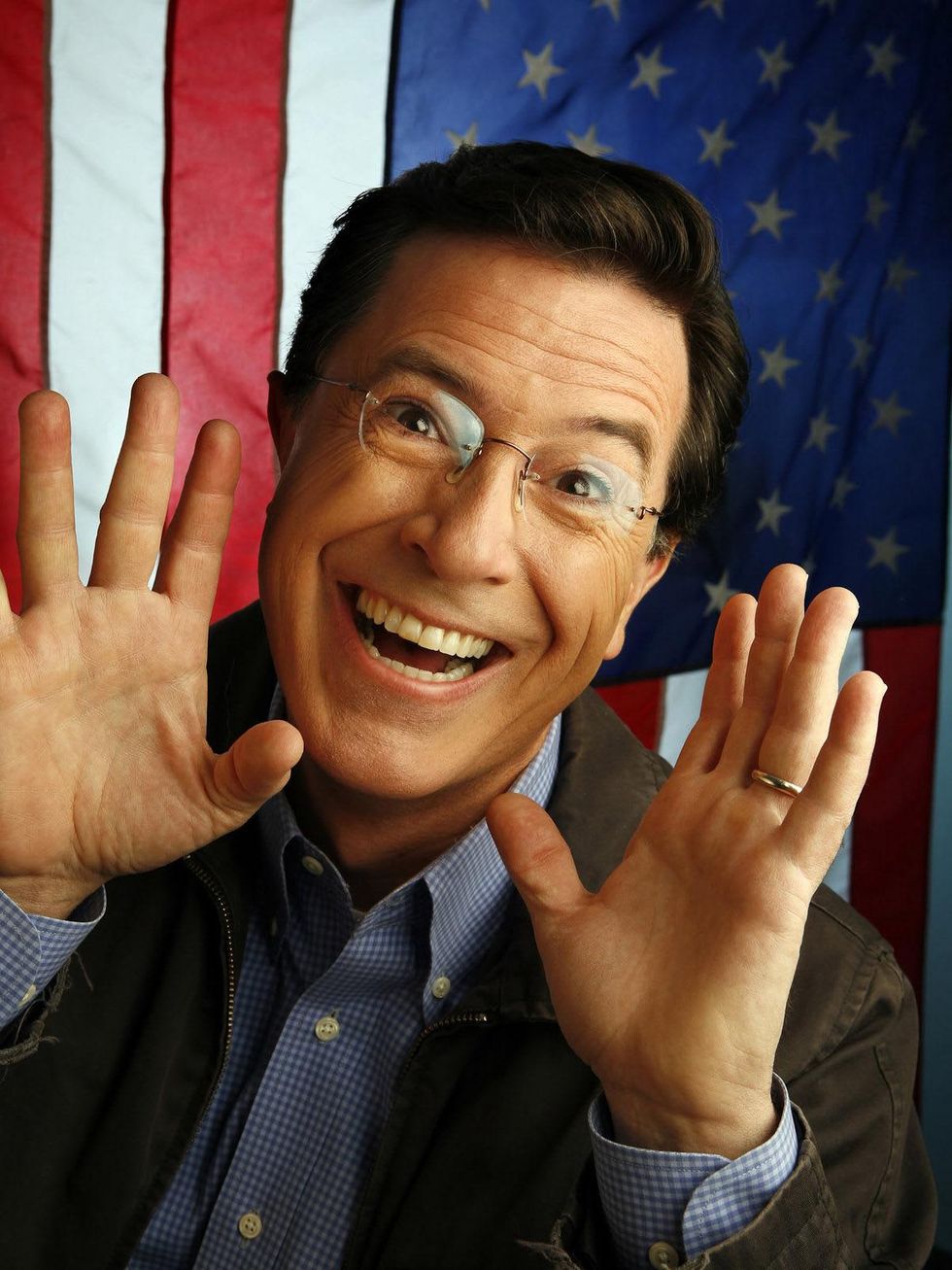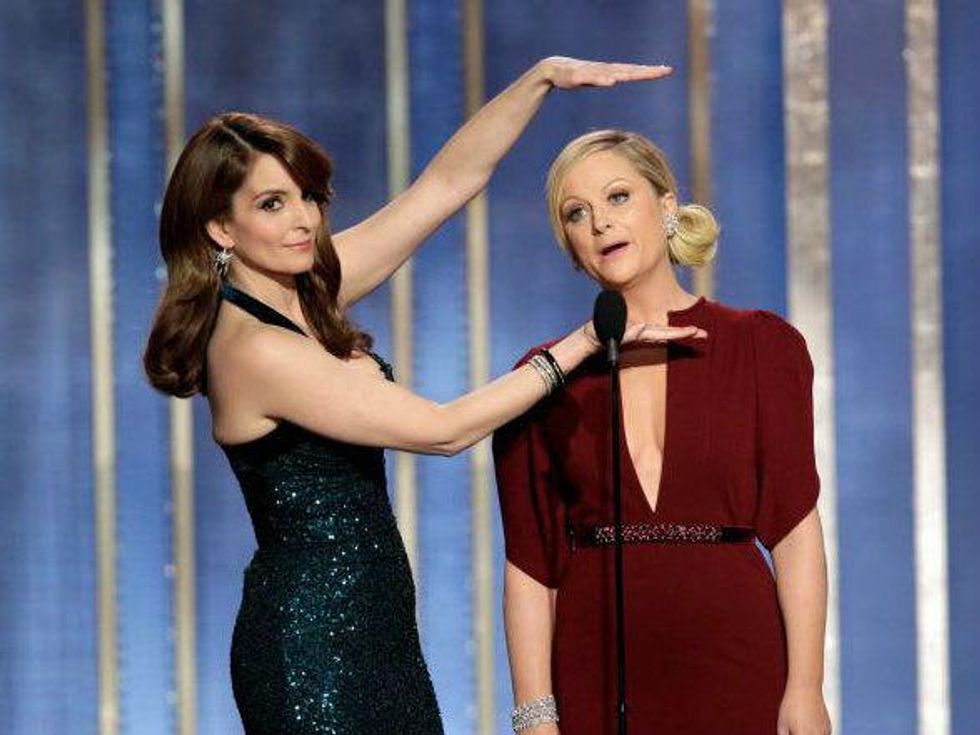Good Grad Advice
Big-time celebrities offer advice for life after graduation and beyond
Graduation season has arrived, and 2015 seems to be a particularly active year for nabbing big-name commencement speakers such as politicians, movie stars, authors, military leaders and executives. This year’s first timers include Matthew McConaughey (University of Houston) and comedienne Maya Rudolph (Tulane University).
And of course there were the tried-and-true standbys — President Obama at the U.S. Coast Guard Academy and former President George W. Bush at Southern Methodist University.
CEOs spreading inspiration and wisdom include Tim Cook of Apple (George Washington University), Ursula Burns of Xerox (Williams College) and Marc Benioff of Salesforce (University of California at Berkeley).
Commencement addresses are a rich tradition, full of nuggets of wisdom for those entering the workforce but also for those of us who are well into our careers. Even the speeches themselves offer a master class in connecting with an audience.
I’ve watched many commencement addresses over the years and more than a few this week. Here are tips gleaned from the most well-received commencement speakers
First things first: Learn to speak in public
One can’t watch YouTube videos of successful commencement speakers without marveling at their ability to articulate and hold an audience’s attention. Sure, the average graduation speaker may have had help (writing or otherwise), but with a little work on your own, you can improve your ability to speak, whether it is in a departmental meeting or before your company.
Find common ground
Jeff Imhelt, CEO of General Electric, addressing the graduating class of Notre Dame, started his speech by saying, “This is especially sweet because we have 400 Notre Dame alums working at GE — including 25 in the audience today — that also includes our CFO.”
Acknowledging a connection at the outset seems like an easy thing to do but so often we are so focused on the business or the transaction that we forget that all business goes smoother if there is common ground and a connection with teammates, business partners and customers.
Relate to the audience
Almost every successful speaker makes some joke about the college’s unique customs, skipping class, drinking too much, making bad grades or the myriad tools of social media.
Amy Poehler, when addressing Harvard, talked about pulling an all-nighter and then going to a movie before writing her speech. Maya Rudolph said, “When I was writing my speech this morning, I did what all of you do as you powered through finals: I took a nap, cried a little and then checked to make sure my iPhone apps were up to date.”
And, on a more serious note, Natalie Portman, speaking at Harvard, where she graduated in 2003, recalled feeling that she was not as smart as her classmates and having dark days where she didn’t want to get out of bed.
Develop a sense of humor
Most of us are not going to be Seth Myers, Ellen DeGeneres or Amy Poehler, but it is fascinating how a well-timed quip or self-deprecating remark can connect the speaker with an audience, defuse tension and make people listen to the more serious stuff you have to say.
Stephen Colbert, who spoke at Wake Forest University, opened by saying, “Congratulations to you, the class of 2015. You did it and you look amazing. Although it’s a little embarrassing, you all showed up in the same outfit. Really, even all of the accessories are the same. Everyone has a black and gold tassel.”
Make your audience feel special
Ginni Rometty, CEO of IBM, speaking to her alma mater Northwestern stated, “Much of what I have accomplished I owe to this great institution. And as I sat here, 30 years ago, I don’t think I was fully aware of the great esteem in which this school is held, both in this country and around the world.”
Even speakers who are not alums will make their audience feel special. Katie Couric, taking the podium at the University of Wisconsin at Madison, said, “I know you must be feeling so many things right now — relieved, excited, sad and perhaps nervous? But I hope most of you are feeling proud, lucky and grateful.”
Academy Award-winning actor and director Robert Redford addressed the 2015 graduates of Maine’s Colby College. He told the audience, which included his grandson, “You’re stepping into a world that’s, well, pretty rough. It’s pretty chaotic, pretty divisive.” He added, “This school has provided you with the tools and it's provided you with the history … to go out in the world and make a difference.”
Robert De Niro, after making a profane and salty speech (“you are f---ed , you don’t have a job”) to the graduates of the Tisch School of Arts at New York University, commented that perhaps the new graduates might one day tap him for a part. “I’m excited and honored to be in a room full of young creators who make me hopeful about the future of the performing and media arts. I know you’re going to make it — all of you. Break a leg.”
Speak of your own challenges
Cook spoke passionately about growing up in the segregated South; Couric talked about losing her husband to cancer. Rudolph spoke of graduating from the University of California at Santa Cruz and having no idea what she wanted to do.
Offer empowering advice
Frankly, my head is swimming from all of the advice these speakers give — albeit all good. There is for sure the practical advice of flossing your teeth, eating right and exercising. Then there are the optimistic platitudes of be true to yourself, ask for help, question the status quo, and find the intersection of what you are good at and what you love.
And let’s not forget learning to be a good global citizen, seeking ways to serve others. A lot to absorb for sure. Although much of the advice is geared to a college graduate, perhaps nervous about what he or she will do, there are always nuggets that are universal and apply to those of us in the middle or later stages of our career.
My favorite advice came from talk show host Meredith Viera, who addressed Boston University graduates about uncertainty. Most of us, no matter where we are in our careers, crave certainty and want to know the end game. Sometimes we get so goal-focused that we lose track of the fun being not in the where you end up but how.
Vieira stated, “How boring would the journey be if you already knew for sure the final destination? Listen, you’re terriers. When terriers go for a car ride, they don’t know where they’re going; they don’t care where they’re going. They stick their head out the window, they let the wind rush over them and they enjoy the ride.”
Let’s hear it for being a terrier and dogged determination.
---
CultureMap contributor Jane Howze is co-founder and managing director of The Alexander Group.






